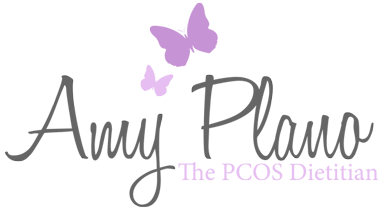Can fertility supplements help women with PCOS?
[vc_row][vc_column width=”1/1″][vc_column_text]While no pill or drink can replace a healthy diet and lifestyle, emerging research has shown that taking certain dietary supplements can improve your fertility.
Here’s our list of the Top 4 dietary supplements women with PCOS should consider taking to improve their fertility.
The 4 best fertility supplements for women with PCOS
Vitamin D
Recognized as a vitamin and a hormone, Vitamin D receptors have now been identified in almost every tissue and cell in the human body. This Vitamin has also been found to be involved in follicle egg maturation and development.
In a small trial study of 13 women with PCOS who were deficient in Vitamin D, normal menstrual cycles resumed within 2 months in 7 of the 9 women who had irregular menstrual cycles when given Vitamin D repletion with calcium therapy (1). Two women even established pregnancies. The authors of the study suggest that abnormalities in calcium balance may be responsible, in part, for the arrested follicular development in women with PCOS and may even contribute to the pathogenesis of the syndrome (1,2).
Low Vitamin D levels were found to be associated with lower rates of follicle development and pregnancy after stimulation with clomid in women with PCOS (3).
Fish Oil
Omega-3 fats, specifically long-chain eicosapentaenoic acid (EPA) and docosahexaenoic acid (DHA) found in cold-water fish may help with fertility in women with PCOS. One study showed androgen concentrations in young women with PCOS were significantly reduced after supplementation of long-chain omega-3 fats (4).
Women with PCOS who were not obese were given 1,500 mg of omega-3 fats daily for six months. BMI plus insulin levels decreased significantly during treatment. Additionally, serum LH and testosterone levels decreased, and SHBG levels increased significantly (5).
Unless you eat cold-water fish (like tuna, trout, salmon) at least twice a week, you may want to consider supplementing your diet with fish oil.
Inositol
Inositol, specifically myo and d-chiro-inositol are perhaps the most researched nutritional supplement for PCOS. A relatives of the B complex vitamins, insositol has shown favorable results in improving nearly all aspects of PCOS, including insulin sensitivity, reproduction (restores ovulation and improves oocyte quality), hormonal imbalance, (improves androgens) and metabolic issues (inflammation, dyslipidemia, hypertension, and weight loss). There is also evidence that taking MYO in pregnancy can reduce the rates of gestational diabetes (6).
In regards to fertility, MYO improved oocyte quality better than d-chiro inositol (DCI). MYO has also been demonstrated to restore ovulation. Twenty-two of 25 women with PCOS had restored menstrual cycle with six months of MYO treatment; 72% of them maintained normal ovulation, and 40% became pregnant (7).
One study compared ovulation rates in women treated with MYO versus metformin. Sixty women received 1,500 mg/day of metformin, while 60 women received 4 g/day of MYO plus 400 mcg of folic acid. Ovulation was restored in 65% of women treated with MYO vs. 50% in the metformin group. More pregnancies occurred in the MYO group vs. metformin (18% vs. 11%) (8).[/vc_column_text][/vc_column][/vc_row]

